Introduction to Pet Eye Health
Just like humans, pets also require regular eye check-ups to ensure optimal vision and overall health. The eyes are not only the windows to the soul but are also indicative of your pet’s general well-being. Ignoring eye health can lead to severe complications, such as blindness, discomfort, or even life-threatening conditions.
The Importance of Maintaining Good Eye Health in Pets
Eye health plays a vital role in your pet’s overall health. Healthy eyes mean your pet can navigate its environment confidently and enjoyably. However, eye issues can lead to discomfort and behavioural changes. Regular monitoring of your pet’s eyes can help detect early signs of conditions such as conjunctivitis, cataracts, or glaucoma.
Purpose of Regular Eye Check-ups for Pets
Regular eye check-ups can help detect conditions early and prevent them from escalating. Your vet can examine your pet’s eyes for abnormalities and provide treatment or preventative care as necessary. These check-ups also give your vet an opportunity to educate you on maintaining your pet’s eye health at home.
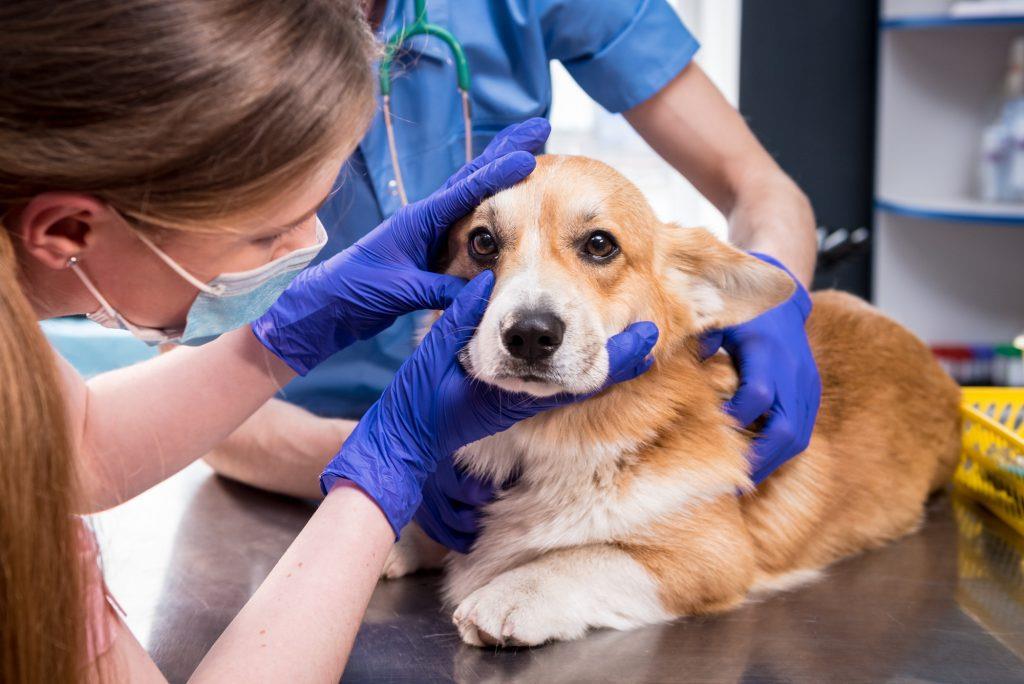
Conclusion
Eye health is crucial for your pet’s overall well-being. Regular eye check-ups for pets are essential for early detection and prevention of eye conditions. Don’t wait until it’s too late, start scheduling regular eye check-ups for your pet today.
Common Eye Problems in Pets: A Comprehensive Overview
When it comes to our beloved pets, maintaining their health is paramount. One area often overlooked is ocular health. Three common eye conditions can seriously impact a pet’s quality of life: cataracts, glaucoma, and conjunctivitis.
Cataracts
A cataract is a clouding of the lens inside the eye, causing blurred vision and eventual blindness. Symptoms include a cloudy or bluish-grey eye appearance. If left untreated, cataracts can cause permanent vision loss.
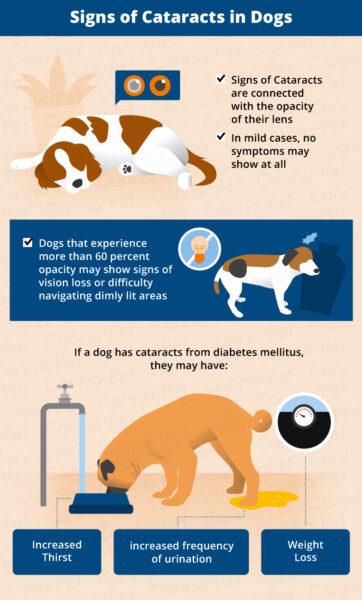
Glaucoma
Glaucoma is a condition where increased pressure inside the eye damages the optic nerve. Pets may display signs such as excessive tearing, a visible third eyelid, or a bulging eye.
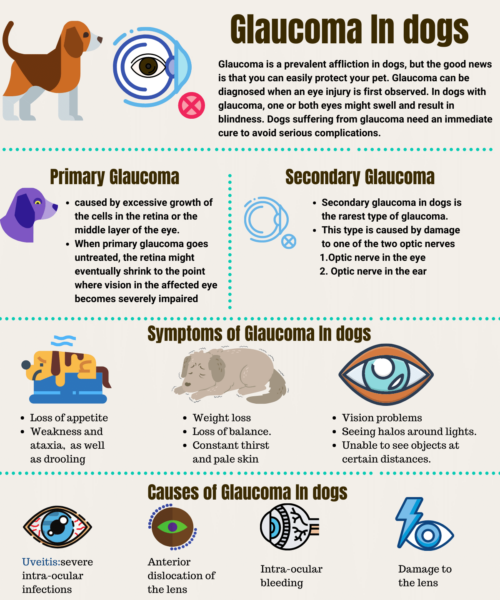
Conjunctivitis
Also known as ‘pink eye’, conjunctivitis is an inflammation or infection of the outermost layer of the eye and the inner surface of the eyelids. Symptoms include redness, discharge, and swollen eyelids.
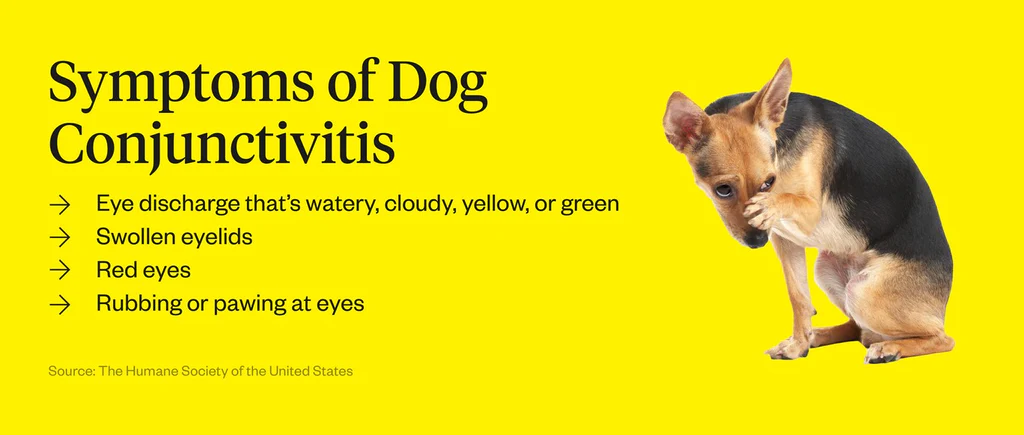
These conditions can potentially lead to severe complications if not addressed promptly. Therefore, regular eye check-ups are critical for early detection and treatment.
The Importance of Regular Eye Check-ups for Pets
Regular eye check-ups play a critical role in the early detection of ocular conditions in pets. Many common eye diseases, such as glaucoma and cataracts, can develop without any noticeable symptoms. By the time pet owners notice any signs, these conditions can already be in their advanced stages, making them harder to treat.
However, with regular eye check-ups, veterinarians can detect these diseases in their early stages, increasing the chances of successful treatment. According to the RSPCA, early detection is key to preventing serious eye problems in pets.
Case Studies and Statistics
Studies have shown that early detection of eye diseases in pets can significantly improve their quality of life and extend their lifespan. For instance, a research study found that 40% of dogs with glaucoma retained their sight due to early detection and treatment.
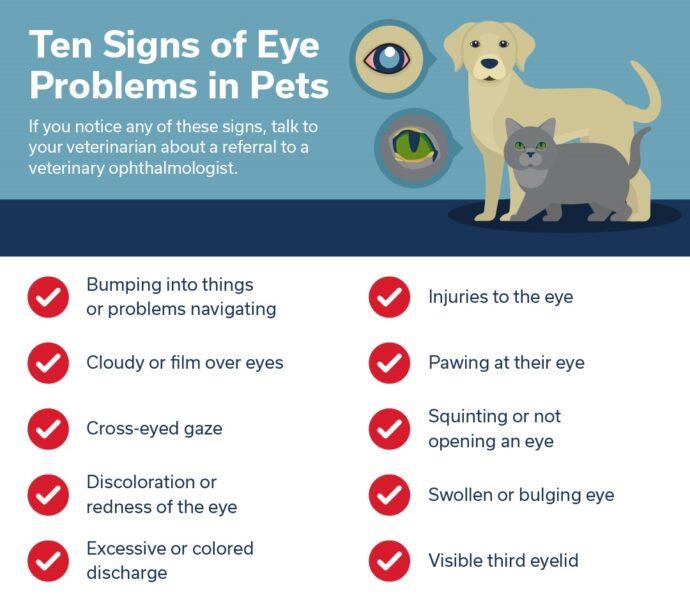
So, for your pet’s overall health and wellbeing, regular eye check-ups should be a priority. Remember, early detection can save your pet’s sight.
The Process of Pet Eye Examination
Regular eye check-ups are essential for ensuring your pet’s overall eye health. The process involves a series of tests that provide a comprehensive assessment of your furry friend’s vision.
Step-by-step Walkthrough of a Typical Eye Examination for Pets
- The initial stage generally involves a visual inspection, where the vet looks for any visible abnormalities, such as redness, discharge, or changes in the eye’s shape or colour.
- Next, the vet may perform a Schirmer tear test to measure tear production, essential in maintaining eye health and comfort.
- Afterwards, a fluorescein stain test may be conducted. This test is crucial in detecting any corneal ulcers or scratches, using a special dye and blue light.
- Finally, an intraocular pressure test may be performed to check for glaucoma or uveitis, severe conditions that can lead to blindness.
Assessing the Overall Eye Health of a Pet
Understanding the overall eye health of your pet goes beyond these tests. It also includes assessing the animal’s behaviour and noting any changes, such as frequent blinking or squinting, rubbing the eyes, or changes in vision. Regular eye examinations are crucial in early detection and treatment of potential eye disorders, thus maintaining your pet’s quality of life. For more information, visit the Australian Veterinary Association’s resources on pet eye health.
Regular eye check-ups for pets are as important as they are for humans. They can detect any potential issues early and ensure effective treatment.
Addressing Fears and Misconceptions about Pet Eye Exams
Many pet owners harbour misconceptions about pet eye exams, often fuelled by the fear that these tests might be stressful or painful for their beloved companions. However, these fears are largely unfounded.
While it’s true that pets might exhibit signs of discomfort during the examination, this is typically due to unfamiliar surroundings or the presence of strangers, rather than the exam itself. In fact, the process is usually no more distressing than a regular check-up.
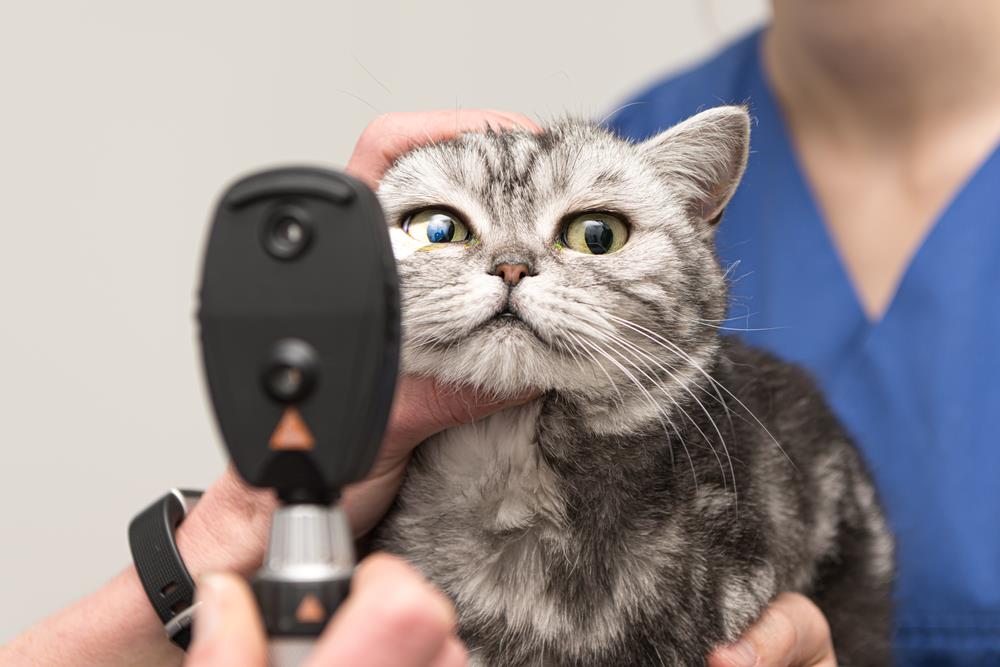
Veterinary ophthalmologists are extensively trained to handle pets with utmost care, ensuring the procedure is as comfortable as possible. They use non-invasive techniques that cause minimal discomfort, if any. Moreover, most pets quickly acclimate to the process, with subsequent visits becoming progressively less daunting.
Therefore, it’s crucial to set aside these fears and misconceptions to safeguard the ocular health of your pets. Regular eye exams can detect early signs of diseases like cataracts or glaucoma, enabling timely intervention and treatment.
The Role of Pet Owners in Maintaining Eye Health
As a pet owner, you play a crucial role in maintaining your pet’s eye health. Regular home check-ups are an essential part of this process, allowing you to spot any early signs of eye health issues. These could include redness, swelling, discharge, or your pet frequently pawing at its eyes. By knowing what signs to look for, you can ensure your pet receives prompt veterinary attention, reducing the risk of permanent damage.
Tips for Keeping Your Pet’s Eyes Clean and Healthy
Keeping your pet’s eyes clean is another key responsibility. Simple steps such as gently wiping their eyes with a clean, damp cloth can help prevent infection. Avoid using any products not specifically designed for pets, as these can cause irritation.
It’s also essential to schedule regular professional eye examinations for your pet. According to the RSPCA, these should be part of your pet’s annual health check.
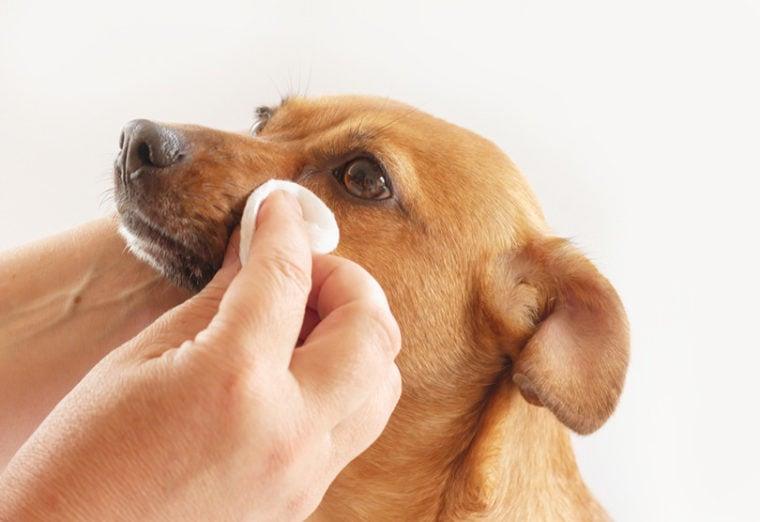
By taking these steps, you can play a proactive role in maintaining your pet’s eye health, ultimately enhancing their overall quality of life. Remember, good vision is vital for your pet’s wellbeing and happiness.
Case Study: The Impact of Regular Eye Check-ups
It cannot be overstated how vital regular eye check-ups are for your pet’s health and overall wellbeing. In a recent case study, it was demonstrated that consistent eye examinations on pets significantly enhanced their quality of life.
Early detection of eye conditions through these check-ups paved the way for prompt treatment, averting the development of severe health complications. This proactive approach not only safeguards your pet’s vision but also contributes to longevity.
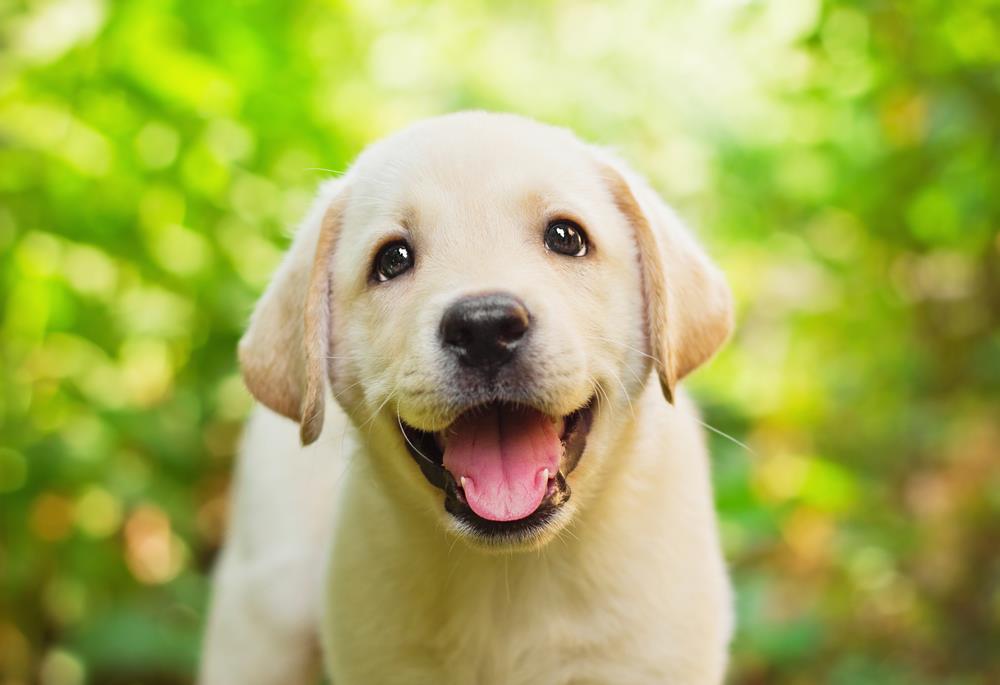
The Power of Prevention
The case study further highlighted that prevention is better than cure. It was observed that pets who received regular eye check-ups had a significantly lower incidence of severe eye conditions, compared to those who didn’t. By catching potential issues early, treatment can be administered swiftly, reducing the risk of any long-term damage and enhancing your pet’s overall quality of life.
It is therefore crucial to make regular eye check-ups an integral part of your pet’s health regime.
Conclusion: Ensuring the Eye Health of Your Pet
The responsibility of safeguarding your pet’s eye health primarily rests on your shoulders as a pet owner. Regular eye check-ups for pets are not merely a luxury, but a necessity. Just like humans, pets can also suffer from various eye diseases such as glaucoma, cataracts, and conjunctivitis. Early detection and treatment of these conditions can save your pet from discomfort, pain, or even blindness.
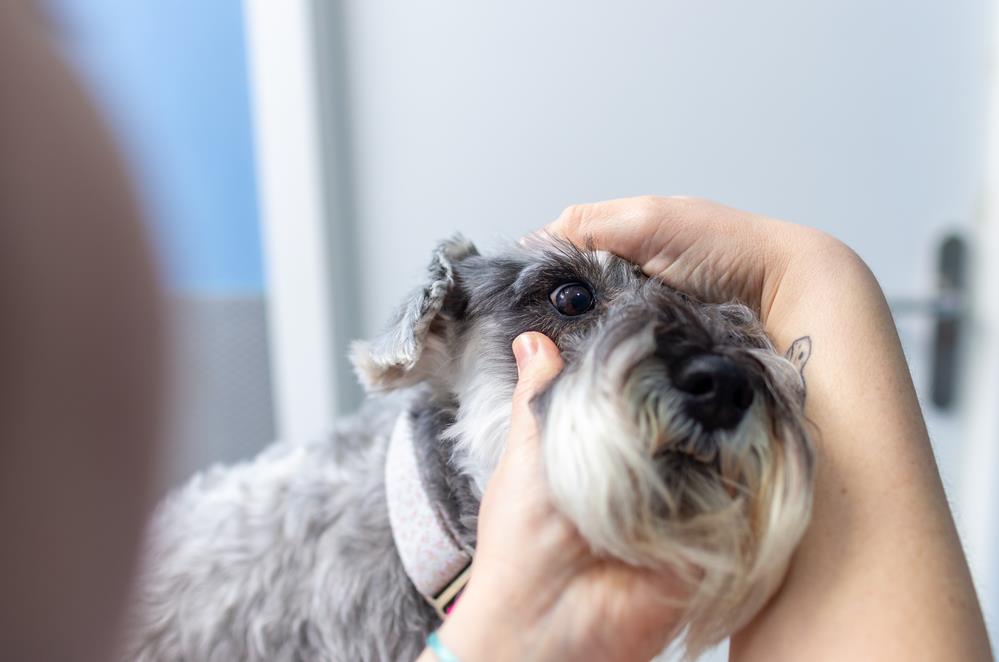
As a pet owner, you play a crucial role in maintaining your pet’s eye health. Regularly inspect your pet’s eyes for any signs of abnormality. If you notice anything unusual, consult your vet immediately. Make regular eye check-ups a part of your pet’s health care routine and ensure that they get the best possible care. Remember, your pet’s health and happiness largely depend on you.


